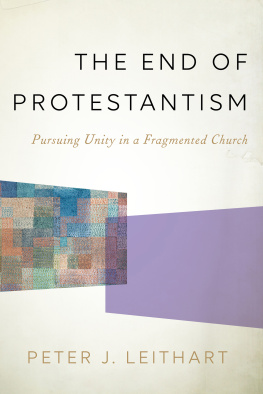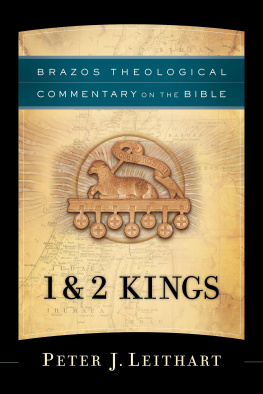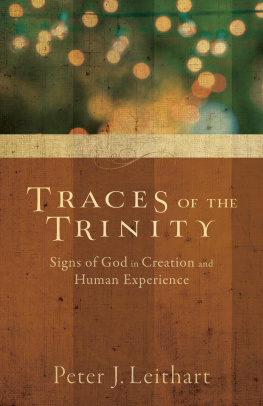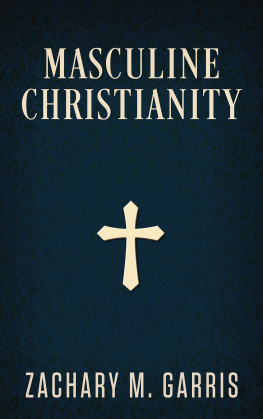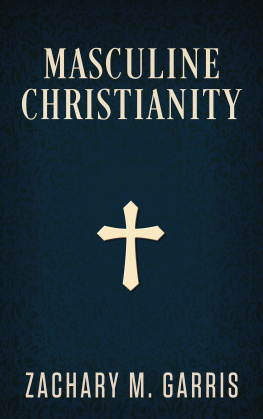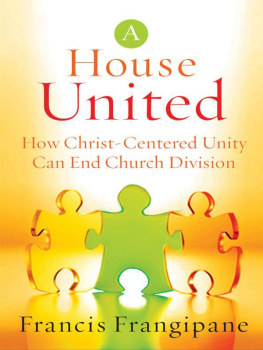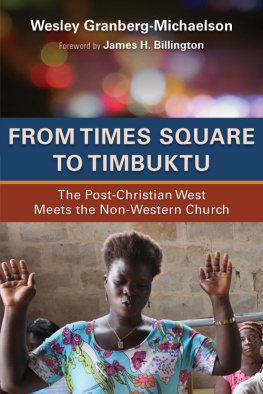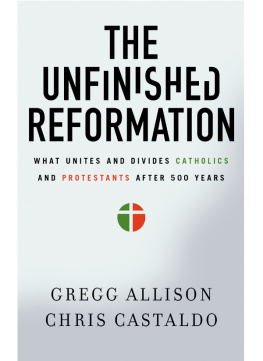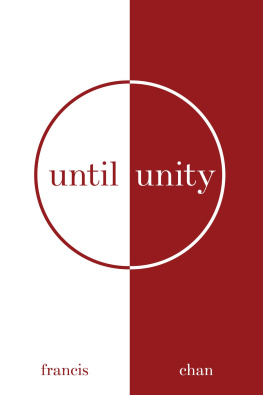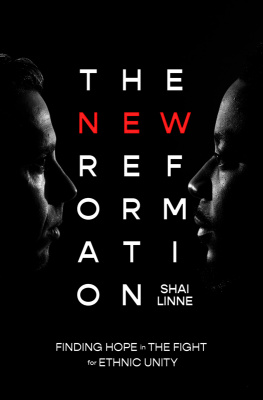Peter J. Leithart - The End of Protestantism: Pursuing Unity in a Fragmented Church
Here you can read online Peter J. Leithart - The End of Protestantism: Pursuing Unity in a Fragmented Church full text of the book (entire story) in english for free. Download pdf and epub, get meaning, cover and reviews about this ebook. year: 2016, publisher: Baker Publishing Group, genre: Religion. Description of the work, (preface) as well as reviews are available. Best literature library LitArk.com created for fans of good reading and offers a wide selection of genres:
Romance novel
Science fiction
Adventure
Detective
Science
History
Home and family
Prose
Art
Politics
Computer
Non-fiction
Religion
Business
Children
Humor
Choose a favorite category and find really read worthwhile books. Enjoy immersion in the world of imagination, feel the emotions of the characters or learn something new for yourself, make an fascinating discovery.
- Book:The End of Protestantism: Pursuing Unity in a Fragmented Church
- Author:
- Publisher:Baker Publishing Group
- Genre:
- Year:2016
- Rating:5 / 5
- Favourites:Add to favourites
- Your mark:
- 100
- 1
- 2
- 3
- 4
- 5
The End of Protestantism: Pursuing Unity in a Fragmented Church: summary, description and annotation
We offer to read an annotation, description, summary or preface (depends on what the author of the book "The End of Protestantism: Pursuing Unity in a Fragmented Church" wrote himself). If you haven't found the necessary information about the book — write in the comments, we will try to find it.
Peter J. Leithart: author's other books
Who wrote The End of Protestantism: Pursuing Unity in a Fragmented Church? Find out the surname, the name of the author of the book and a list of all author's works by series.
The End of Protestantism: Pursuing Unity in a Fragmented Church — read online for free the complete book (whole text) full work
Below is the text of the book, divided by pages. System saving the place of the last page read, allows you to conveniently read the book "The End of Protestantism: Pursuing Unity in a Fragmented Church" online for free, without having to search again every time where you left off. Put a bookmark, and you can go to the page where you finished reading at any time.
Font size:
Interval:
Bookmark:
2016 by Peter J. Leithart
Published by Brazos Press
a division of Baker Publishing Group
P.O. Box 6287, Grand Rapids, MI 49516-6287
www.brazospress.com
Ebook edition created 2016
All rights reserved. No part of this publication may be reproduced, stored in a retrieval system, or transmitted in any form or by any meansfor example, electronic, photocopy, recordingwithout the prior written permission of the publisher. The only exception is brief quotations in printed reviews.
Library of Congress Cataloging-in-Publication Data is on file at the Library of Congress, Washington, DC.
ISBN 978-1-4934-0583-1
Unless otherwise indicated, Scripture quotations are from the New American Standard Bible, copyright 1960, 1962, 1963, 1968, 1971, 1972, 1973, 1975, 1977, 1995 by The Lockman Foundation. Used by permission. (www.Lockman.org)
Scripture quotations labeled KJV are from the King James Version of the Bible.
Chapter 9 was originally published in a slightly modified form in Michael Bird and Brian Rosner, eds., Mending a Fractured Church: How to Seek Unity with Integrity (Bellingham, WA: Lexham, 2015). Used by permission.
Portions of this text have been revised from the authors blog posts at First Things (http://www.firstthings.com/blogs/leithart/) and are used here by permission.
The internet addresses, email addresses, and phone numbers in this book are accurate at the time of publication. They are provided as a resource. Baker Publishing Group does not endorse them or vouch for their content or permanence.
To my unborn grandchild,
who may, or may not,
be another grandson
Cover
Title Page
Copyright Page
Dedication
Acknowledgments
1. An Interim Ecclesiology
M OVEMENT O NE : CHURCH UNITED
2. Evangelical Unity
3. A Reformed Church
4. The End of Protestantism
M OVEMENT T WO : CHURCH DIVIDED
5. The Case for Denominationalism
6. The Case against Denominationalism
7. Denominationalisms Dividing Walls
INTERMEZZO
8. From Glory to Glory: The Pattern of History
M OVEMENT T HREE : DIVIDED CHURCH DISSOLVING
9. The Restructuring of Global Christianity
10. American Denominationalism and the Global Church
M OVEMENT F OUR : UNITED CHURCH REBORN
12. A Way Forward: From Present to Future
Notes
Index
Back Cover
I have been thinking and writing about Protestant catholicity for more than two decades, but this book had a more immediate catalyst in the energetic response I received to several essays published in First Things magazine during 2013. First Things later teamed up with the Torrey Honors Institute at Biola University to sponsor a public forum at Biola in the spring of 2014 on the future of Protestantism. I am grateful to the organizers of that event and to my interlocutors, Carl Trueman, Fred Sanders, and Peter Escalante, for helping me refine my thoughts about these issues. During a spring teaching session at New St. Andrews College in 2015, I had the privilege of debating these issues again with Douglas Wilson. My practical suggestions, such as they are, were inspired by the examples of Rev. Richard Bledsoe of Boulder, Colorado, and the late Pastor Tom Clark of Somerset, New Hampshire, both of whom embody local catholicity.
Over the past several years, I have been part of ecumenical dialogues sponsored by Evangelicals and Catholics Together, the Center for Catholic-Evangelical Dialogue, and the Paradosis Center at John Brown University. I am grateful for the friendships I have formed in these settingswith Matthew Levering, Hans Boersma, Chad Raith, Timothy George, Tom Guarino, Francesca Murphy, Rusty Reno, Robert Wilken, and many othersand grateful too for the opportunity to learn much from theologians outside my own tiny sector of Protestantism.
At Brazos, Dave Nelson and his team provided steady guidance as this book took shape. My thanks to all these, and to the many who have contributed to this book in ways that I have failed to mention here.
This book is dedicated to my forthcoming, as yet unnamed grandchild, reputed to be a grandsonby the time the book is published, well know for sure. I would be glad to see the grandsons evening the score with the granddaughters, though I hasten to add that its not a competition . My prayer is that he will grow up in a world where the broken church is being put together again, and I even entertain fond hopes that he will play some small role in that reunion. Regardless of what lies ahead in that regard, I have no doubt that his life will be full of challenge, and also trust that our faithful Lord will prepare him to meet these challenges and triumph through them all.
Though I do not yet know you, Noni and I love you and cant wait to see you.
An Interim Ecclesiology
Jesus prayed that his disciples would be united as he is united with his Father (John 17:21). Jesus is in the Father, and the Father in Jesus. Each finds a home in the other. Each dwells in the other in love.
Jesus prayed that the church would exhibit this kind of unity: Each disciple should hospitably receive every other disciple, as the Father receives the Son. Each church should dwell in every other church, as the Son dwells in the Father.
This is what Jesus wants for his church. It is not what his church is.
The church is divided. It is not that the church has remained united while groups falsely calling themselves churches have split off. It is not that we are spiritually united while empirically divided.
The church is a unique society, the body of Christ and the temple of the Spirit. But it is a visible society that exists among other societies.
That visible society is divided, and that means the church is divided. This is not as it should be. This is not the church that Jesus desires. So long as we remain divided, we grieve the Spirit of Jesus, who is the living Passion of the Father and Son.
Some will object that I am exaggerating. Some will object that we are united in many ways. All churches confess common doctrines, celebrate common rituals, have some form of pastoral care and leadership. There is unity in doctrine, sacrament, and office.
In reality, every apparent point of unity is also a point of conflict and division. We are united in confession of the God who is Father, Son, and Spirit, in confessing Jesus as the incarnate Son who died and rose again. Most churches can affirm most of the contents of the Apostles Creed, even if they do not adopt the creed.
Yet we are doctrinally divided. Virtually every church has added to the early creeds and made those additions fundamental to the church. Presbyterian pastors must affirm not only the early creeds but also the elaborate system of the Westminster Confession. Lutheran churches define themselves doctrinally by the Formula of Concord, a doctrinal statement used by no one but Lutherans.
Even when we affirm the same doctrine, we affirm it differently. Protestants and Catholics both confess justification, but they mean very different things by it. Even on something as central to Christian faith as Jesuss resurrection from the dead, churches diverge. Some deny that the resurrection actually happened. Others, rightly, insist on Pauls claim that without the resurrection we are not saved.
To say that we agree on fundamentals assumes that we agree on what the fundamentals are. But we do not agree. For some, it is fundamental dogma to believe that the pope can speak infallibly and that Mary was immaculately conceived and assumed into heaven. For others, those are not only nonfundamental; they are not even true.
Font size:
Interval:
Bookmark:
Similar books «The End of Protestantism: Pursuing Unity in a Fragmented Church»
Look at similar books to The End of Protestantism: Pursuing Unity in a Fragmented Church. We have selected literature similar in name and meaning in the hope of providing readers with more options to find new, interesting, not yet read works.
Discussion, reviews of the book The End of Protestantism: Pursuing Unity in a Fragmented Church and just readers' own opinions. Leave your comments, write what you think about the work, its meaning or the main characters. Specify what exactly you liked and what you didn't like, and why you think so.

